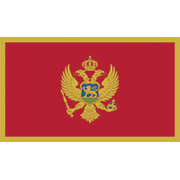Fiscal subject related
General information
Montenegro's parliament has approved the introduction of a new 15% Value Added Tax (VAT) rate, which will come into effect on January 1, 2025. This change will impact a variety of products and services that were previously taxed at 7%.
The new 15% VAT rate will apply to:
- Books
- Hotel and accommodation services
- Non-alcoholic beverages
- Food preparation services
- Copyrights
- Educational services
- Marina services
- Solar panels
- Hairdressing services
The existing 7% VAT rate will continue to apply to essential goods, including:
- Basic food items
- Medicines
- Medical devices
- Textbooks
- Non-bottled drinking water
- Public transportation
- Animal feed
- Menstrual products
The adjustment aims to align Montenegro's tax system with EU Directive 2006/112, supporting the country's application for EU membership. Additionally, the reform seeks to reduce the overall tax burden on wages as part of a broader fiscal strategy to enhance Montenegro's economic framework and facilitate its integration into the European Union.
This significant tax reform marks a step forward in Montenegro's efforts to modernize its economy and align with European standards.
Other news from Montenegro
New document was uploaded: S4FiscalBackoffice Patch
S4F backoffice patch is intended for users who have already installed S4F backoffice and are intended to update existing installations to latest version. To do so apply only patches that are marked with version number that is newer than your currently installed instance of backoffice. Please make sure to install all available patches sequentially (without skipping). This package contains instruction, release notes, changelog and software packages required for deployment of this software component. Read more
Subscribe to get access to the latest news, documents, webinars and educations.
Already subscriber? Login


New document was uploaded: S4FiscalBackoffice Patch
S4F backoffice patch is intended for users who have already installed S4F backoffice and are intended to update existing installations to latest version. To do so apply only patches that are marked with version number that is newer than your currently installed instance of backoffice. Please make sure to install all available patches sequentially (without skipping). This package contains instruction, release notes, changelog and software packages required for deployment of this software component. Read more
Subscribe to get access to the latest news, documents, webinars and educations.
Already subscriber? Login


New document was uploaded: S4FiscalBackoffice Patch
S4F backoffice patch is intended for users who have already installed S4F backoffice and are intended to update existing installations to latest version. To do so apply only patches that are marked with version number that is newer than your currently installed instance of backoffice. Please make sure to install all available patches sequentially (without skipping). This package contains instruction, release notes, changelog and software packages required for deployment of this software component. Read more
Subscribe to get access to the latest news, documents, webinars and educations.
Already subscriber? Login


Tax Administration in Montenegro: over €4.4 Million in fines issued during summer inspections
 Montenegro
Author: Nikolina Basić
Montenegro
Author: Nikolina Basić
Between May and August, Montenegro's Tax Administration conducted nearly 6,000 inspections, resulting in over €4.4 million in fines for tax irregularities. These checks focused heavily on the high-risk hospitality and accommodation sectors as part of a strategic effort to combat the shadow economy and improve fiscal transparency. In an effort to combat the shadow economy and reinforce tax discipli... Read more



New document was uploaded: S4F backoffice patch
S4F backoffice patch is intended for users who have already installed S4F backoffice and are intended to update existing installations to latest version. To do so apply only patches that are marked with version number that is newer than your currently installed instance of backoffice. Please make sure to install all available patches sequentially (without skipping). This package contains instruction, release notes, changelog and software packages required for deployment of this software component. Read more
Subscribe to get access to the latest news, documents, webinars and educations.
Already subscriber? Login


Montenegro Tax Inspections Yield Over €1 Million in Fiscalization Fines
 Montenegro
Author: Nikolina Basić
Montenegro
Author: Nikolina Basić
Montenegro’s Tax Administration conducted 1,715 inspections between May and July 2025, targeting coastal tourist areas and uncovering widespread violations, issuing over €1.2 million in fines and temporarily closing more than 10 companies. Authorities are emphasizing compliance with fiscalization laws, particularly among accommodation providers, and encouraging citizens to report irregularities. &... Read more



New document was uploaded: S4F backoffice patch
S4F backoffice patch is intended for users who have already installed S4F backoffice and are intended to update existing installations to latest version. To do so apply only patches that are marked with version number that is newer than your currently installed instance of backoffice. Please make sure to install all available patches sequentially (without skipping). This package contains instruction, release notes, changelog and software packages required for deployment of this software component. Read more
Subscribe to get access to the latest news, documents, webinars and educations.
Already subscriber? Login

